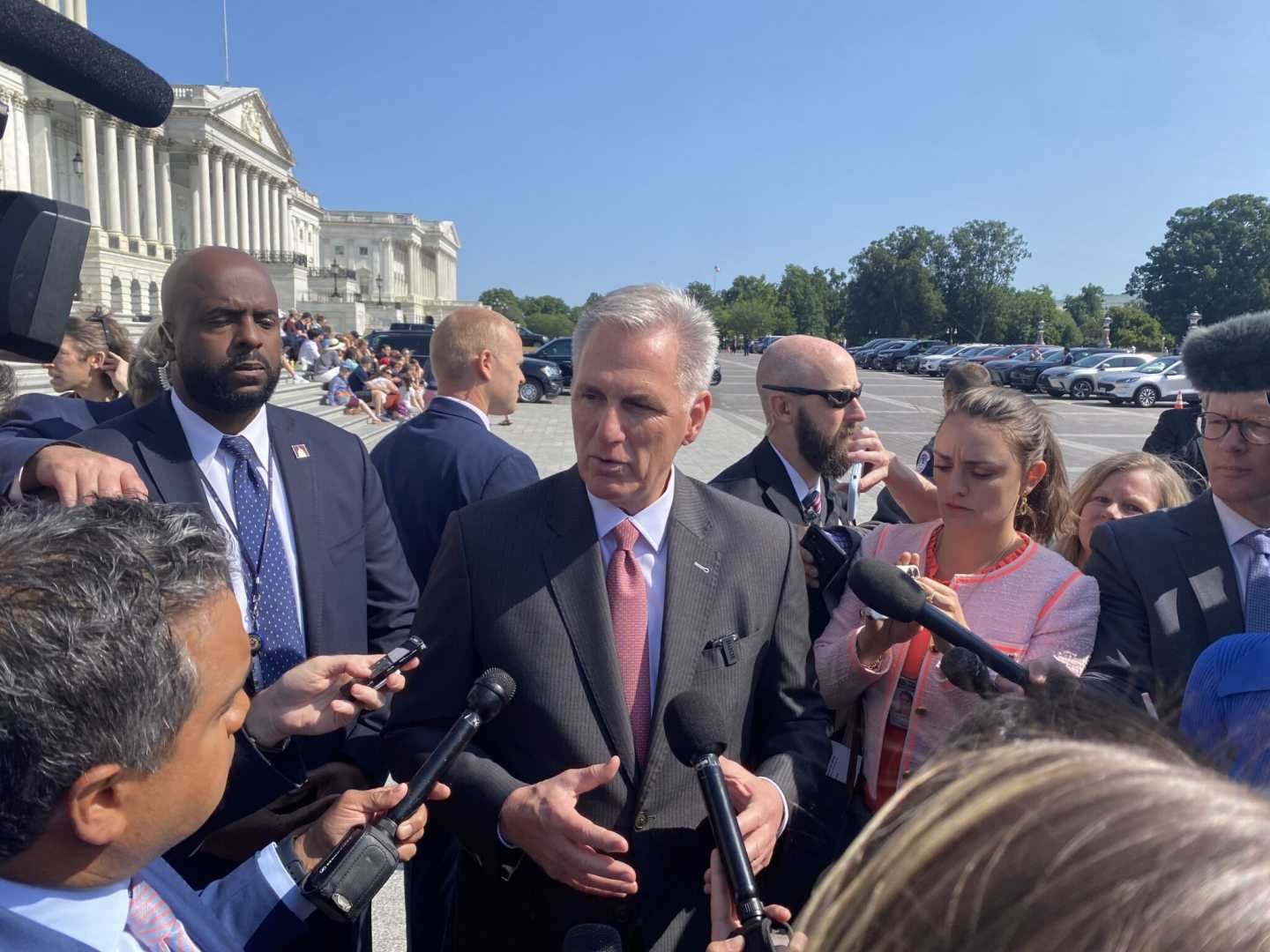Politics
Republicans Face Pressure to Compromise on Medicaid Cuts

Washington, D.C. — House Republicans are grappling with significant divisions over proposed Medicaid changes as they seek to fund President Donald Trump’s legislative agenda. After a meeting on Tuesday, GOP leaders, including Speaker Mike Johnson, R-La., announced they would rule out certain cuts to Medicaid, sparking concerns among conservatives eager for deeper reductions.
During a nearly two-hour discussion, a group of about a dozen GOP moderates voiced resistance to cutting Medicaid, which provides healthcare services to low-income Americans. Johnson confirmed they would not reduce the Federal Medical Assistance Percentage, or FMAP, which currently covers 90% of Medicaid expansion costs, or institute per capita caps that could sever benefits for thousands.
“We’re hearing loud and clear that this is not the direction our members want to go,” Johnson said. He maintained the focus would remain on implementing work requirements for healthy adults in states that expanded Medicaid. “That will be part of the bill, and it always has been,” he added.
The Congressional Budget Office has projected that work requirements could save the government over $100 billion, but many Republicans doubt this approach will yield the necessary savings to meet the ambitious target of $880 billion over the next decade.
Energy and Commerce Chairman Brett Guthrie, R-Ky., warned of a “complete collapse” of Medicaid funding without substantial reforms. However, he acknowledged the challenges posed by moderates who argue such cuts could lead to millions losing coverage.
In response to rising concerns within their ranks, GOP leaders are weighing alternatives to achieve required savings, including new eligibility checks and capping Medicaid costs for certain demographics. Yet moderates fear that such measures would disproportionately harm vulnerable populations, including children and the elderly.
Rep. Nick LaLota, R-N.Y., emphasized the need for open discussion to create a package that 99% of their conference can support. The tension over Medicaid has raised the stakes for Republicans as they prepare for a critical vote expected in mid-May, with implications for the broader budget negotiations.
The urgency around crafting a cohesive package follows growing discontent from both ends of the GOP spectrum. Conservatives insist on significant cuts to the program, stating it is vital to restore fiscal discipline. Meanwhile, moderates argue that deep cuts could jeopardize essential services for those who rely on Medicaid.
As the debate continues, GOP leaders find themselves between a rock and a hard place, attempting to push through legislation that will satisfy competing interests while also meeting the fiscal goals set by the party.
Johnson remains optimistic, stating, “We can pass that by Memorial Day.” However, with ongoing divisions and the complexity of the proposals, the path ahead remains uncertain.












